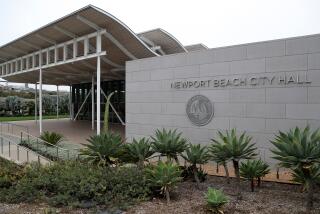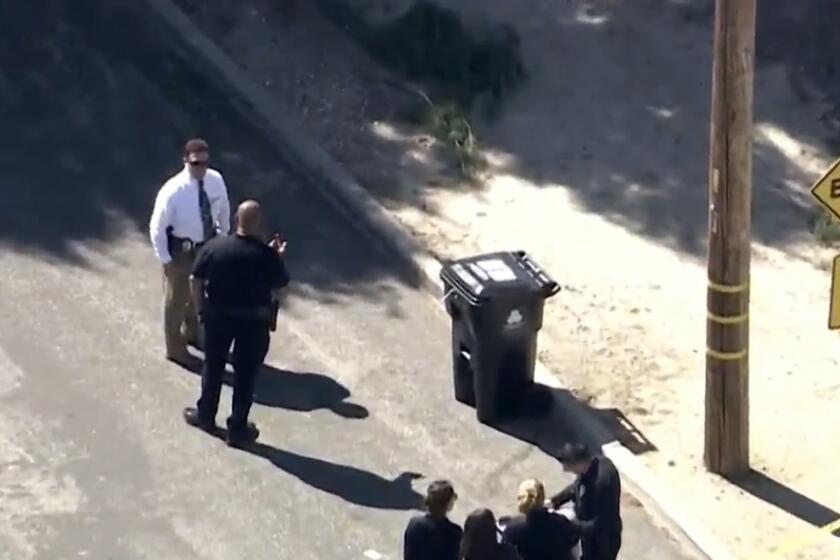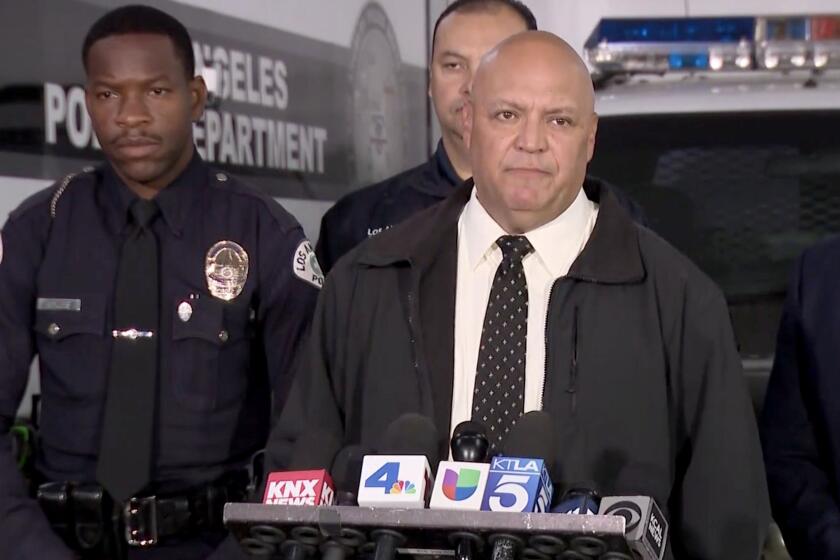California court rules cities, counties can ban pot stores
In a decision that could have immediate fallout for medical marijuana dispensaries, a state appeals court has ruled that California law allows cities and counties to ban the stores.
The contentious issue has bounced through the state courts for years, but the opinion issued Wednesday is the first published one that directly tackles it and does so in unambiguous language. The decision, which upholds Riverside’s ban, could embolden more cities and counties to enact their own. It also could spur those that have bans to be more aggressive about seeking court orders to close defiant dispensaries.
“I think its impact will be significant throughout the state,” said Jeffrey Dunn, an attorney who argued the case for Riverside. “It’s not wishy-washy. It squarely addresses it. And it makes it very clear.”
In the case, a three-judge panel in the 4th District Court of Appeal in Riverside rejected an appeal from Inland Empire Patient’s Health and Wellness Center and concluded that the state’s medical marijuana laws do not prevent cities and counties from passing regulations on dispensaries, including bans. The judges also issued a nearly identical unpublished opinion Wednesday, upholding Upland’s ban.
The decisions closely follow another appellate court ruling that said Long Beach could not adopt any regulations that amount to authorizing dispensaries because marijuana remains illegal under federal law. That decision has left officials throughout the state puzzled about what rules they can impose. Together, the two decisions could lead more cities and counties to put bans in place.
Joe Elford, chief counsel for Americans for Safe Access, said he fears that could happen, but added, “I would hope that they would do the responsible thing and continue to regulate dispensaries.”
Long Beach, which had used a lottery to select the dispensaries it would allow, will now consider a ban.
Paul Chabot, founder of the Coalition for a Drug Free California, said he hoped that the decision would spell the end for pot shops.
“This really puts the green light out to all city attorneys that they can take action immediately to shut them down,” he said. “The tide is turning against so-called medical marijuana in California.”
Americans for Safe Access says 168 cities and 17 counties ban dispensaries, while Chabot’s group puts it at 225 and 15. Both organizations say that more than 80 cities and about 10 counties have moratoriums, while a few more than 40 cities and about 10 counties have ordinances that allow dispensaries.
The recent decisions could give the state Supreme Court an opportunity to address critical issues that remain unsettled 15 years after voters made California the first state to allow medical use of marijuana. Despite the state’s groundbreaking status, its medical marijuana program is the most tumultuous. The state’s four federal prosecutors have ramped up enforcement to shut down dispensaries and growers.
Long Beach City Atty. Robert Shannon said the city filed its appeal to the Supreme Court on Thursday. “The law is in total disarray,” he said. “There is no clarity and consistency.”
And the founder of the Riverside dispensary, Lanny Swerdlow, said he expects the collective will also appeal.
“We think that it’s wrong that a city can ban a state-permitted activity by zoning it out of existence,” he said. “By allowing cities to ban, it just makes a crazy-quilt pattern across the state.”
Riverside now plans to take action against an estimated 15 dispensaries violating its ban. “We will be immediately moving to shut them down,” City Atty. Gregory Priamos said. “We’re extremely pleased that the court recognized and respected local land use and zoning authority.”
More to Read
Start your day right
Sign up for Essential California for news, features and recommendations from the L.A. Times and beyond in your inbox six days a week.
You may occasionally receive promotional content from the Los Angeles Times.






